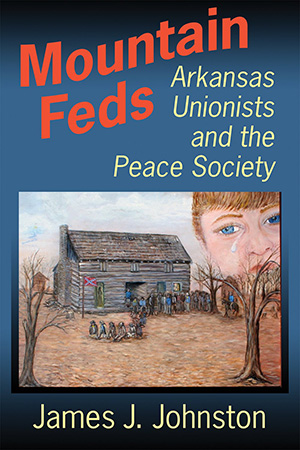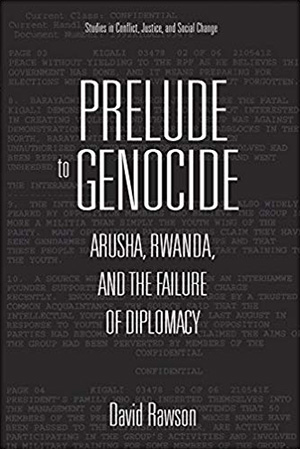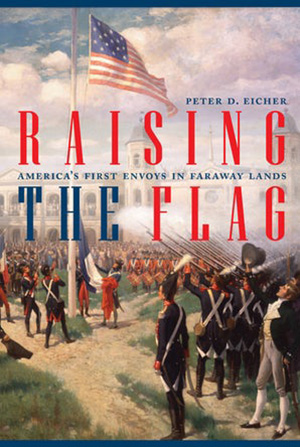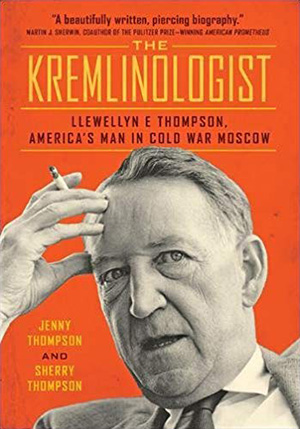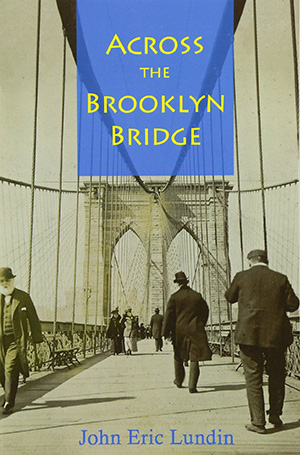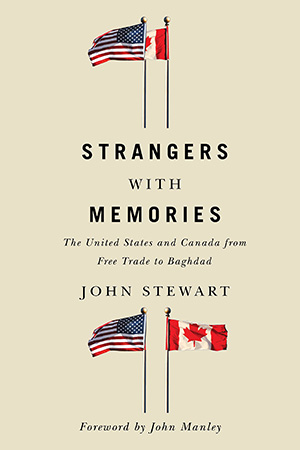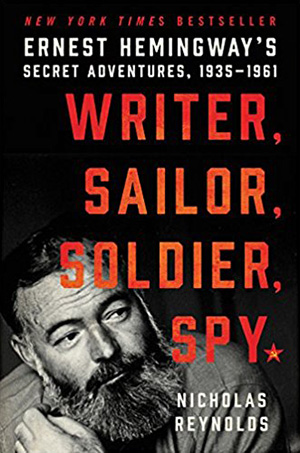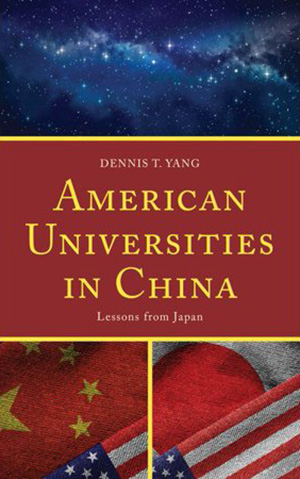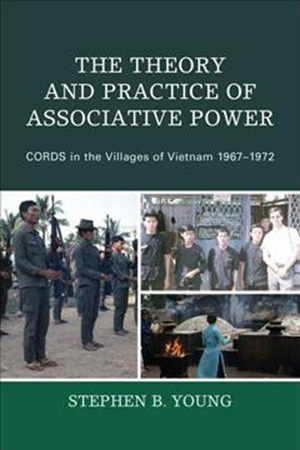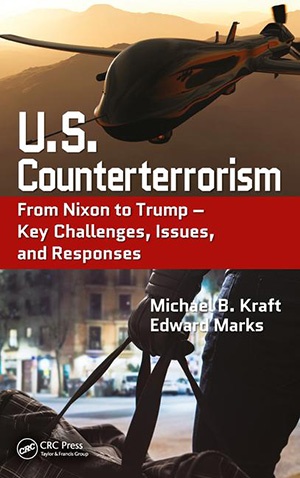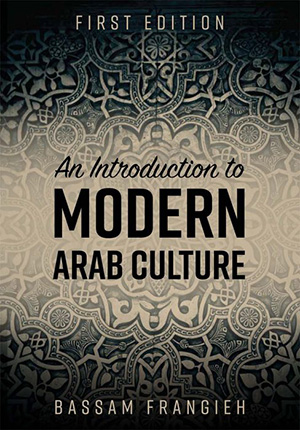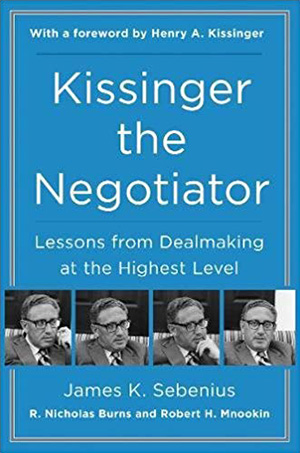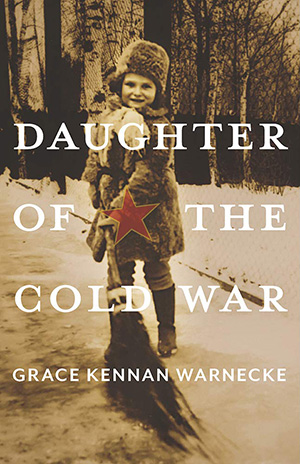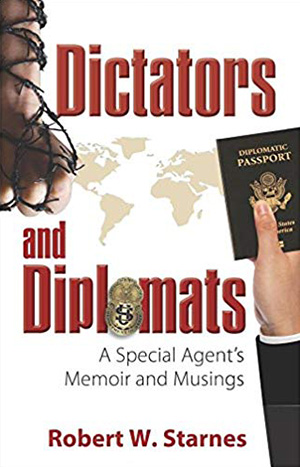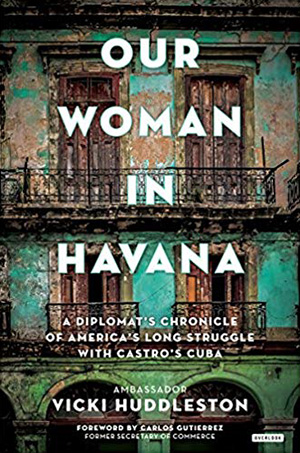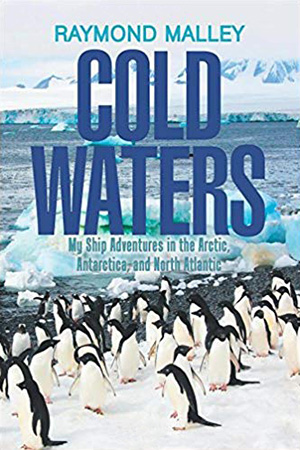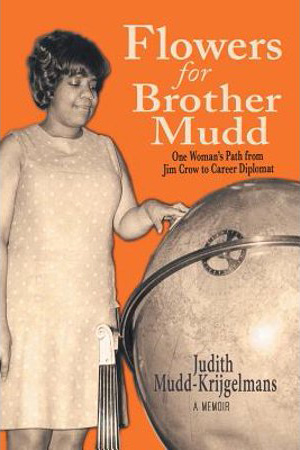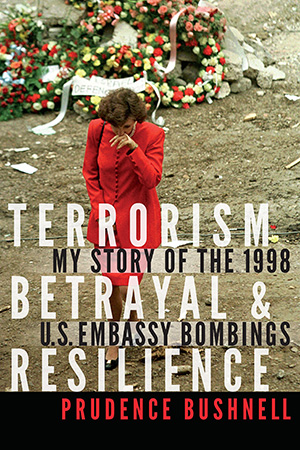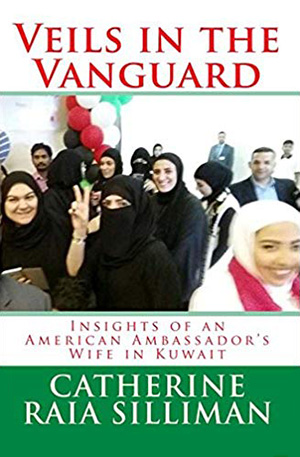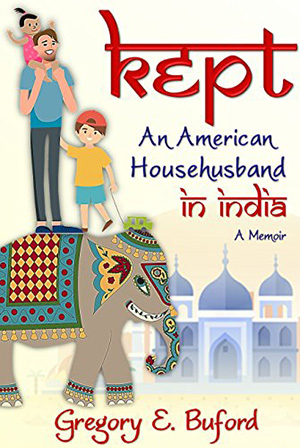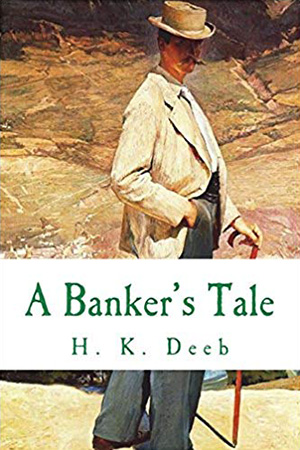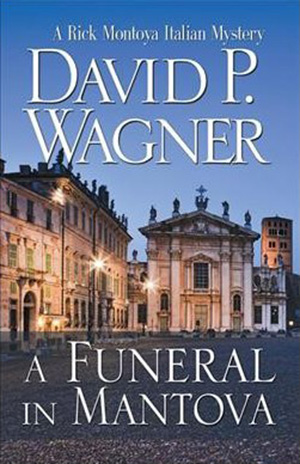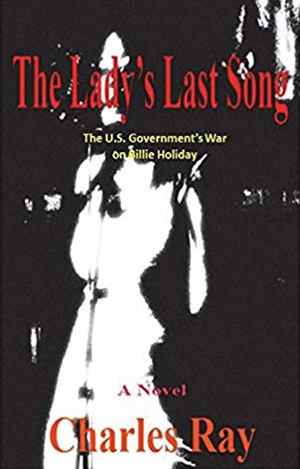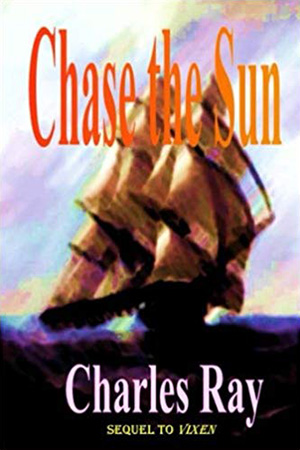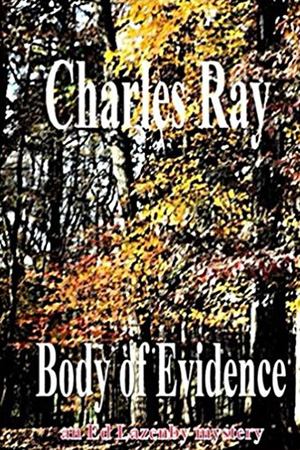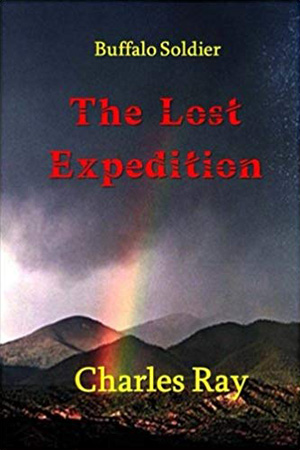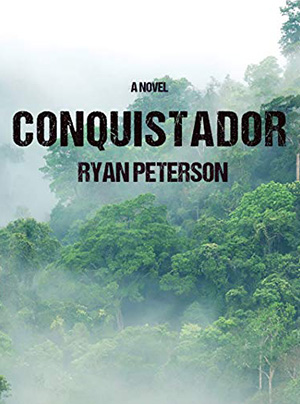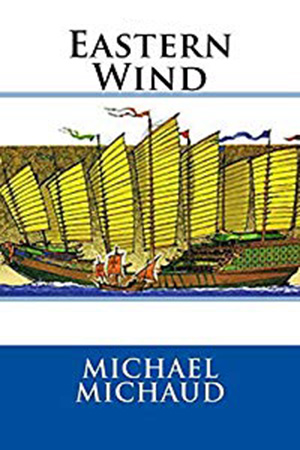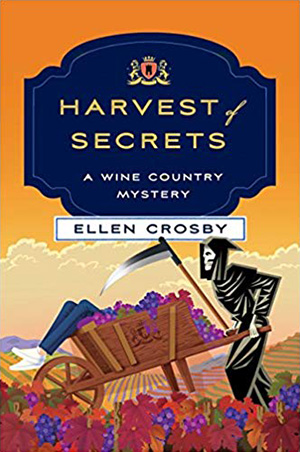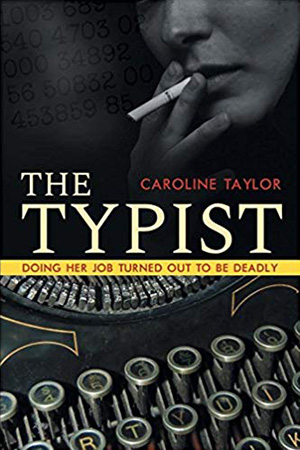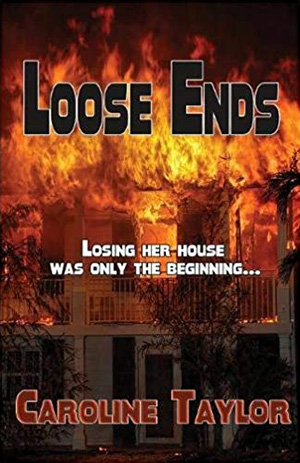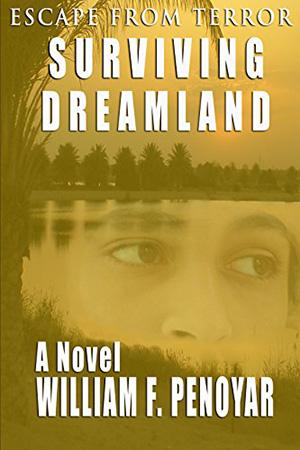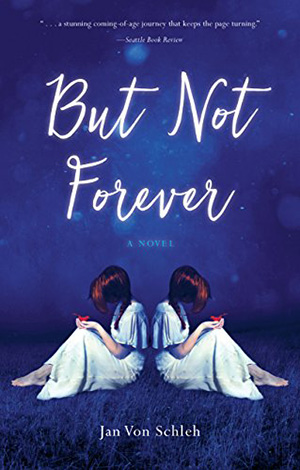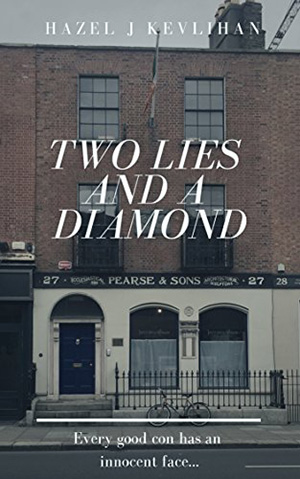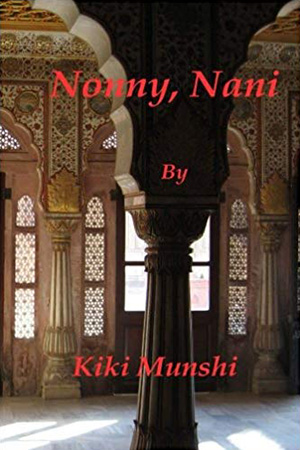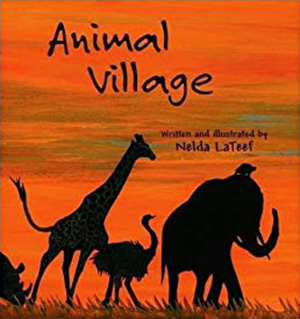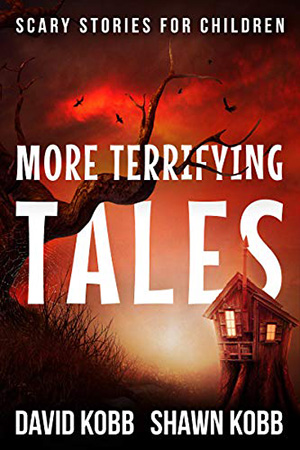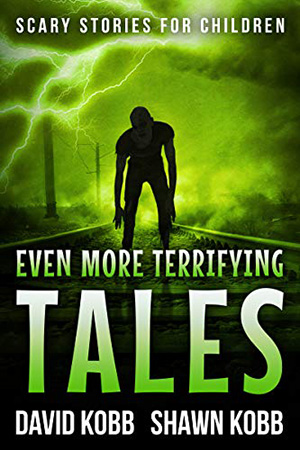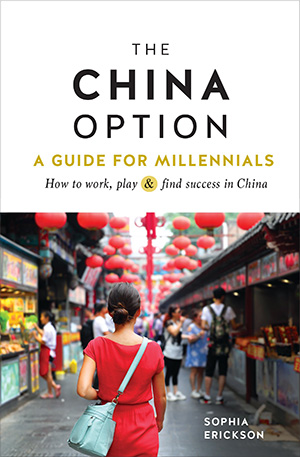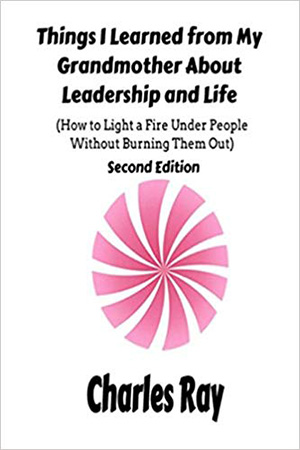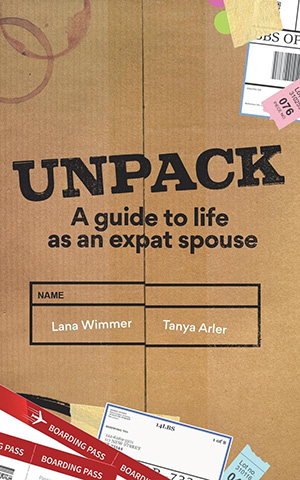In Their Own Write
We are pleased to present this year’s collection of books by Foreign Service members and their families.
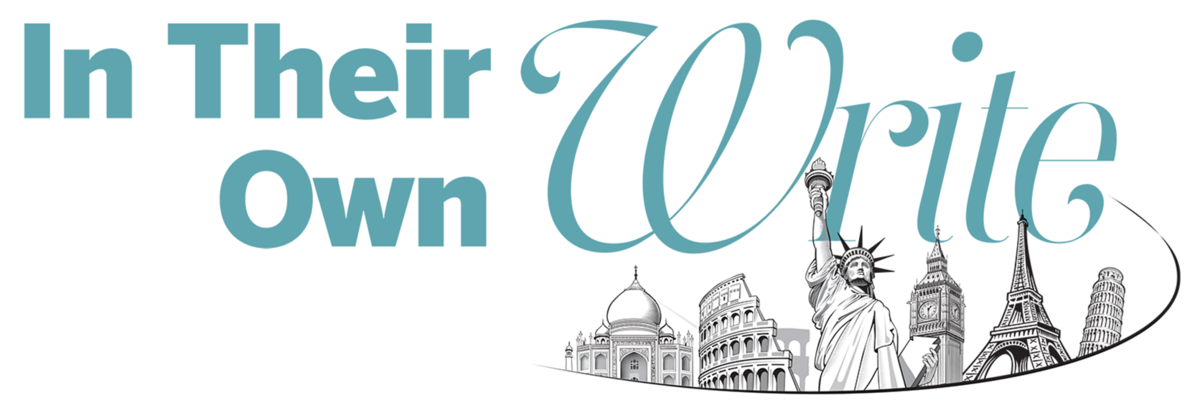
The Foreign Service Journal is pleased to present our 18th annual Foreign Service authors roundup in plenty of time for holiday orders.
Our primary purpose in presenting “In Their Own Write” is to celebrate the wealth of literary talent within the Foreign Service community, and to give our readers the opportunity to support colleagues by sampling their wares. Each entry contains full publication data along with a short commentary. As has been the case for more than a decade, a majority of the titles are self-published.
Our annotated list of books written, edited or translated by Foreign Service personnel and their family members in 2017 and 2018 is not a comprehensive or definitive record of works by FS authors; we rely on the authors themselves to bring their books to our attention.
This year we’re featuring 48 volumes—eight works of history and biography, six books on policy and issues, eight memoirs and 15 works of fiction, including several titles for young adults, in addition to four books for children and a potpourri of works on food, parenting, expat life and leadership, one volume of photographs and a guide to China for Millennials. As usual, we also include a selection of recent books “of related interest” to diplomats and their families that were not written by FS authors.
For the few books that cannot be ordered through online retailers, we have provided the necessary contact information. Th is year’s roundup was assembled with the vital assistance of Publications Coordinator Dmitry Filipoff , Editorial Intern Jacob Borst and Steven Alan Honley.
—Susan Brady Maitra, Managing Editor
BIOGRAPHY AND HISTORY
Mountain Feds: Arkansas Unionists and the Peace Society
James J. Johnston, Butler Center Books, 2018, $39.95/hardcover, $24.95/paperback, 320 pages.
This book tells the little-known but dramatic story of an intrepid band of farmers and hill people in northern Arkansas who courageously opposed the state’s secession from the Union and refused to fight for the Confederacy. Th ey formed secret organizations, collectively called the Arkansas Peace Society (later known as the Union League), inaugurated their own leaders and actively resisted the Confederate government.
Beginning in November 1861, secessionists formed vigilante committees to arrest and interrogate APS members. As the campaign spread across the state, local militias took over the eff ort. Although this eff ort largely suppressed the organization, some of its leaders would assume leadership positions in civil government during the last months of the war, and the effects of their actions would resonate for years to come.
Retired FSO James J. Johnston, a native of Camden, Arkansas, served in administrative and consular positions, principally in Africa and Latin America, until retiring in 1988. Following his last posting, as administration counselor in Mogadishu, Johnston and his wife, Margaret, returned to Arkansas and now reside in Fayetteville. He is the recipient of a Lifetime Achievement Award from the Arkansas Historical Association and the McGimsey Preservation Award from the Arkansas Archeological Society. Butler Center Books is a division of the Butler Center for Arkansas Studies at the Central Arkansas Library System.
Prelude to Genocide: Arusha, Rwanda, and the Failure of Diplomacy
David Rawson, Ohio University Press, 2018, $65/hardcover, $35/paperback, 342 pages.
Despite the presence of a United Nations Assistance Mission and an intervention that sought to create a peace process throughout 1992 and 1993, the troubled state of Rwanda continued to simmer with tension and volatility. The fragile situation was ultimately shattered by the downing of Rwandan President Habyarimana’s plane in April 1994, which opened the door to civil war and genocide.
In this story of frontline diplomacy David Rawson attempts to understand why negotiations failed to keep tragedy at bay in Rwanda. Rawson participated in the International Observer Program as the initial U.S. observer in peace talks at Arusha, Tanzania, in 1992 and subsequently served as U.S. ambassador to Rwanda. As ambassador he finally witnessed the failure of the doomed Arusha agreements.
Drawing on declassified documents and his own experiences, Rawson paints a revealing picture of struggling diplomacy and the dire consequences of failed conflict resolution. Prelude to Genocide is a volume in the Diplomats and Diplomacy Series of DACOR and the Association for Diplomatic Studies and Training.
David Rawson capped his 28-year career in the U.S. Foreign Service as ambassador to Rwanda (1993–1995) and to Mali (1996– 1999). Since his retirement from the Foreign Service, he has been a professor of political economy at Spring Arbor University and a distinguished visiting professor of politics at Hillsdale College, both near his home on the family farm in Michigan.
Raising the Flag: America’s First Envoys in Faraway Lands
Peter D. Eicher, Potomac Books, 2018, $36.95/hardcover, 416 pages.
Peter Eicher tells the story of some of America’s earliest envoys and the unique challenges they faced representing a newborn nation. Diplomats such as James Cathcart, Samuel Shaw, Edmund Roberts and others had to compete against more well-established foreign missions while explaining an experimental form of government known as American democracy to curious counterparts.
“It is not intended to be a comprehensive history of early American diplomacy, but instead recounts individual experiences that illustrate the development of foreign policy and the growth of American influence around the world,” the author states of the book. As Raising the Flag documents, early American envoys focused almost entirely on promoting U.S. exports and protecting American sailors and merchants all over the world, notes former FSJ editor and FSO Steve Honley in his review of the book in the September Journal.
The stories of these individuals are drawn from thoroughly researched primary source material including official dispatches to the State Department, letters, diaries, memoirs and travel logs. Far from a tale of elegant receptions and diplomatic decorum, the story of early American diplomacy was often one of disease, isolation and dangerous misunderstandings in foreign lands.
Peter D. Eicher is a retired U.S. Foreign Service officer who served in Europe, the Middle East, Africa and the Pacific. He specialized in political affairs, particularly human rights, conflict resolution and international organizations. Eicher is the editor of “Emperor Dead” and Other Historic American Diplomatic Dispatches and Elections in Bangladesh, 2006–2009: Transforming Failure into Success.
The Kremlinologist: Llewellyn E. Thompson, America’s Man in Cold War Moscow
Jenny Thompson and Sherry Thompson, Johns Hopkins University Press, 2018, $80.75/hardcover, $39.95/paperback, $39.95/Kindle, 600 pages.
Against the sprawling backdrop of the Cold War, The Kremlinologist revisits some of the 20th century’s greatest conflicts as seen through the eyes of one of America’s hardest-working diplomats, Llewellyn E. Thompson. From the wilds of the American West to the inner sanctums of the White House and the Kremlin, Ambassador Thompson was an important adviser to presidents and a key participant in major global events, including the Cuban Missile Crisis and the Vietnam War.
In vigorous prose, Thompson’s daughters Jenny and Sherry Thompson document his life as an accomplished career diplomat. They describe how Thompson joined the Foreign Service both to feed his desire for adventure and from a deep sense of duty.
They also detail the crucial role he played as a negotiator unafraid of compromise. Known in the State Department as “Mr. Tightlips,” Thompson was the epitome of discretion. People from completely opposite ends of the political spectrum lauded his approach to diplomacy and claimed him as their own.
Reviewing the book in the March Journal, retired Senior FSO Jonathan B. Rickert declares that “Ambassador Thompson would have been proud of the skill, thoroughness and evenhandedness with which his daughters compiled this biography.”
Jenny Thompson runs an English-language school in Estepona, Spain. Before she retired, Sherry Thompson was the director of a nonprofit foundation. The authors spent eight years of their childhood in Moscow.
Across the Brooklyn Bridge
John Eric Lundin, CreateSpace, 2017, $25/paperback, 445 pages.
When retired FSO John E. Lundin discovered his late father’s detailed diaries, begun in 1941 at age 19 and continuing through service in World War II and beyond, Lundin’s fascination with his family’s history was stoked and the idea for this book was born.
The story of a family across three generations and three continents and cultures, Across the Brooklyn Bridge is a uniquely American chronicle. The author’s grandfather, William, became a seaman in 1898 at the age of 15, and left his native Sweden just five years later as a crew member on the steamship Rhynland, which was sailing out of Liverpool to Philadelphia. After several years and dozens of trans-Atlantic crossings, William settled in the United States, in Brooklyn, to raise a family.
The author’s father, John A. Lundin, who grew up in Brooklyn in the 1920s and died in 2005, anchors the story. His diaries offer a window into the life of a young engineering student in wartime Brooklyn and New York City and a soldier in the U.S. Army Signal Corps in New Guinea and the Philippines. And they document the experience of an American soldier and his true love, a Filipina, overcoming the ocean dividing them and pushing the boundaries of the socially acceptable in 1940s America to start their own family.
The author’s exhaustive research to ensure historical accuracy and the inclusion of many photos add to the depth of this multifaceted work.
John E. Lundin served for 30 years with the U.S. Information Agency and the Department of State. His overseas postings included Taiwan, Denmark, China and Japan.
Strangers with Memories: The United States and Canada from Free Trade to Baghdad
John Stewart, McGill-Queen’s University Press, 2017, $39.95/hardcover, $23.99/Kindle, 278 pages.
In the early 1990s North America was the vibrant center of an increasingly democratic and revitalized Western Hemisphere. Washington and Ottawa were close allies, working together to implement a bilateral free trade agreement and build an integrated manufacturing and export economy. But by the late 2000s, the economic and diplomatic ties between the two countries were strained as policies stagnated or slipped backward, and passports were needed to cross the border for the first time in history. Relations have only deteriorated further under President Donald Trump’s administration.
In Strangers with Memories, John Stewart combines an insider’s knowledge, a mole’s perspective and a historian’s consciousness to explain how two countries that spent the last century building a world order together drifted apart so quickly. He also details changes at the U.S. embassy in Ottawa and in its relationship with U.S. consulates in Canada and with the State Department’s Canada desk during those years. Explaining how Canada’s influence in the world depends on the United States and has radically diminished with the decline in diplomacy under Presidents George W. Bush and Donald Trump, Stewart offers valuable advice on how Canada should handle its foreign policy in a much less stable world.
John Stewart spent 20 years at U.S. Embassy Ottawa as a locally employed (then known as a Foreign Service national, or FSN) economist and manager. He is now director of policy and research at the Canadian Nuclear Association.
Washington Park, Troy, New York: A Social History
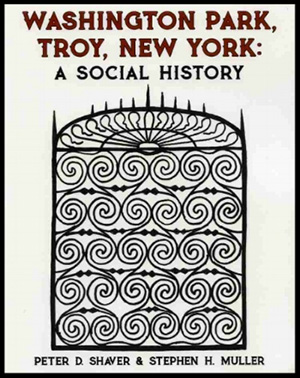
Peter D. Shaver and Stephen H. Muller, Troy Book Makers, 2017, $19.99/paperback, 120 pages.
This book tells the social story of historic Washington Park, established in 1840 in Troy, New York, and one of only two private ornamental parks in the state.
The town of Troy, established in 1789, capitalized first on its location at the head of navigation of the Hudson River, and later on its ready access to the eastern end of the Erie Canal, which opened in 1825. The park was surrounded by planned neighborhoods that attracted the elite of the city.
The book delves into the details of individual families and how their lives shaped the neighborhood—some were “new money,” and others had deep roots in the area’s economic ascent. Rich with black and white photographs, the book covers Troy and its Washington Park from their establishment in the early 19th century to the town’s 20th-century decline, and its recent rebirth and restoration.
Retired FSO Stephen H. Muller settled in Troy after 26 years as an economic officer with the U.S. Department of State and has lived in the Washington Park neighborhood for 12 years. He is the author of Troy, New York, and the Building of the USS Monitor. Co-author Peter D. Shaver, a graduate of Syracuse University, has lived near Washington Park for more than three decades and was an historian at the New York State Office of Parks, Recreation and Historic Preservation.
Writer, Sailor, Soldier, Spy: Ernest Hemingway’s Secret Adventures, 1935-1961
Nicholas Reynolds, William Morrow, 2018, $27.99/hardcover, $16.99/paperback, $11.99/Kindle, 400 pages.
A riveting international cloak-and-dagger epic ranging from the Spanish Civil War to the liberation of Western Europe, wartime China, the Red Scare of Cold War America and the Cuban Revolution, Writer, Sailor, Soldier, Spy reveals for the first time Ernest Hemingway’s secret adventures in espionage and intelligence during the 1930s and 1940s (including his role as a Soviet agent code-named “Argo”). This literary biography with the soul of an espionage thriller is an essential contribution to our understanding of the life, work and fate of one of America’s most legendary authors.
While he was the historian at the CIA Museum, Nicholas Reynolds, a longtime American intelligence officer, former U.S. Marine colonel and Oxford-trained historian, stumbled across evidence of Hemingway’s recruitment by Soviet spies to work with the NKVD, the forerunner to the KGB. That was followed in short order, the author discovered, by a complex set of secret relationships with American agencies.
Reynolds’ meticulously researched and captivating narrative “looks among the shadows and finds a Hemingway not seen before,” says the London Review of Books. Reynolds explains how those secret adventures played a role in some of the novelist’s greatest works, including For Whom the Bell Tolls and The Old Man and the Sea. But they also added to the psychological burden that Hemingway carried at the end of his life and may well have contributed to his suicide.
Nicholas Reynolds grew up in the Foreign Service. His father, George Edward Reynolds, was an FSO from 1945 to 1974; and his mother, Ilona V. Reynolds, was a Foreign Service National working in the legation in Budapest in 1947. His wife, Rebecca, retired from State’s Bureau of Medical Services in 2004.
POLICY AND ISSUES
American Universities in China: Lessons from Japan
Dennis T. Yang, Lexington Books, 2017, $85/hardcover, 116 pages.
Why is it so difficult to expand American universities overseas? Dennis Yang discusses the ambitions and operations of American universities in China through the perspective of similar efforts in Japan.
In the early 1990s there were as many as 40 American universities in Japan, and Yang offers insight into why the idea of expansion appeared so attractive at first. But only a few years after Japan experienced economic hardship during what would come to be known as its “lost decade,” most of these universities would close. Will American universities in China learn from the lessons of those that failed in Japan, or will many of these institutions also wither with time and eventually suspend their operations, as well?
By reviewing historical documents, interviewing stakeholders in both countries and analyzing the culture of Japanese and Chinese higher education, Yang seeks to identify the sources of success and failure in expanding American universities abroad.
Dennis Yang is a member of the U.S. Foreign Service and currently serves as a regional English language officer (RELO) at the U.S. Department of State.
The Theory and Practice of Associative Power: CORDS in the Villages of Vietnam, 1967–1972
Stephen B. Young, Hamilton Books, 2017, $44.97/paperback, $30/Kindle, 414 pages.
During the Vietnam War, Stephen B. Young spent three years in Vinh Long province as a Foreign Service officer with the U.S. Agency for International Development. His work with the Civil Operations and Revolutionary Development Support counterinsurgency program, for which he served as a deputy district adviser in the province and chief of the village government branch there, is the basis of this book.
Young’s CORDS experience persuaded him that for the United States to achieve its national security objectives, it must apply associative power in place of both hard power and soft power. As he explains, this approach entails the use of joint ventures and alliances to optimize the forms of power brought to bear in conflicts, responding with precision to a spectrum of threats, situational challenges and political opportunities.
Young believes the United States successfully used this approach in Vietnam, but failed to apply it in Iraq and Afghanistan. Because of this omission, interim outcomes in those conflicts did not accomplish American objectives.
Stephen B. Young was a USAID FSO from 1967 to 1971, and later took the initiative to begin resettling refugees from Indochina after the Vietnam War. A fluent Vietnamese speaker, he and his wife, Pham Thi Hoa, translated Duong Thu Huong’s novel The Zenith into English. And with Nguyen Ngoc Huy, Young co-authored The Tradition of Human Rights in China and Vietnam.
David vs. David, Volume One: We Agree to Disagree
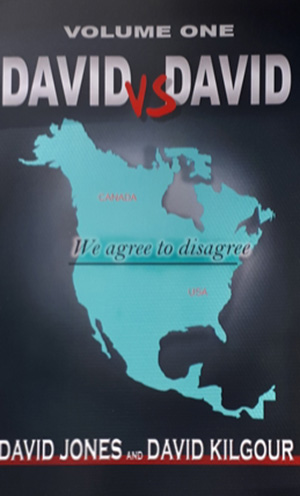
David Jones and David Kilgour, Baico Publishing, Inc., 2018, $25/paperback, 379 pages.
For more than five years, David T. Jones (long a familiar byline to Foreign Service Journal readers) and David Kilgour, who served for seven terms in the Canadian Parliament, have written a series of columns addressing various issues for Yahoo! and The Epoch Times. Drawing on their respective careers and backgrounds, the authors’ goal has been to offer readers cogent, thoughtful and engaging examinations of politics, academia, journalism and human rights.
Longtime friends, “The Davids” believe they occupy a unique niche as commentators thanks to their extensive familiarity with Canada and the United States. With that in mind, they have assembled some favorite columns here, supplemented by commentaries and evaluations of where each was right and went wrong. This first volume is devoted to domestic issues on both sides of the border, such as elections, health care, guns and crime, racism and economics, to name but a few. Looking ahead, the next collection will address foreign affairs and diplomacy, while a projected Volume 3 will compile standalone pieces by each author.
David T. Jones is a retired Senior Foreign Service officer. He is the author of Alternative North Americas: What Canada and the United States Can Learn from Each Other (Woodrow Wilson Center, 2014), editor of The Reagan-Gorbachev Arms Control Breakthrough: The Treaty Eliminating Intermediate-Range (INF) Missiles (New Academia Publishing, 2012) and co-author with David Kilgour of Uneasy Neighbo(u)rs: Canada, the USA and the Dynamics of State, Industry and Culture (Wiley, 2007).
David Kilgour, a human rights activist, author, former lawyer and Canadian politician, is a Senior Fellow of the Raoul Wallenberg Centre for Human Rights in Montreal.
To purchase this book, please contact jonesdt2002@yahoo.com.
U.S. Counterterrorism: From Nixon to Trump—Key Challenges, Issues and Responses
Michael B. Kraft and Edward Marks, CRC Press, 2017, $69.95/hardback, $55.96/Kindle, 240 pages.
In the aftermath of the 9/11 attacks, President George W. Bush treated terrorism as an existential threat, declaring a global war on it. Barack Obama’s administration both kept up and modified those policies, and Donald Trump has continued that process.
This book traces the evolution of U.S. counterterrorism policy over the past half-century as the threat shifted from primarily secular groups to those with far-reaching fundamentalist religious goals, such as ISIS. Within that framework, the authors highlight the accelerating impact of the internet, cyber threats and armed drones, among other factors, and include an extensive list of key documents for those interested in the original texts and a discussion of legal issues.
Michael B. Kraft is a Washington-based counterterrorism consultant, writer and editor with more than 30 years of experience working on terrorism issues in the State Department, Congress and the private sector. After retiring as a senior adviser in the State Department Counterterrorism Bureau, he worked on those issues at the National Defense University’s Africa Center for Strategic Studies.
Edward Marks spent 40 years in the U.S. Foreign Service, including an assignment as ambassador to Guinea-Bissau and Cabo Verde, before retiring as a Senior FSO (Minister-Counselor) in 1995. A frequent contributor to The Foreign Service Journal and other periodicals, Ambassador Marks writes, speaks and consults widely, mostly with the Department of Defense.
An Introduction to Modern Arab Culture
Bassam Frangieh, Cognella Academic Publishing, 2019, $85.95/hardcover, $77.95/e-Book, 434 pages.
Over the course of 13 chapters, readers of An Introduction to Modern Arab Culture will learn about the emergence and influence of Islam in Arab culture, religious and ethnic minorities within the Arab world, the critical role of family in Arab life, and the origin and evolution of the Arabic language. Author Bassam Frangieh introduces readers to these aspects of Arab culture while demonstrating how they intertwine to create a unique tapestry of identity, experience and history. The book is well-suited to courses in Middle East culture and history, politics, thought, literature, religion and language, and courses in sociology, anthropology and cultural studies.
Bassam Frangieh, the spouse of retired FSO Alita Wenger, is a professor of Arabic at Claremont McKenna College and a scholar of contemporary Arabic literature and culture. He previously taught at Georgetown University and Yale University. He is the author of Anthology of Arabic Literature, Culture, and Thought from Pre-Islamic Times to the Present and Arabic for Life (both published by Yale University Press), and his translated books include Love, Death, and Exile, a volume of poetry from the works of the renowned Iraqi poet Abdul Wahab Al-Bayati.
Kissinger the Negotiator: Lessons from Dealmaking at the Highest Level
James K. Sebenius, R. Nicholas Burns and Robert H. Mnookin, HarperCollins, 2018, $28.99/hardcover, $14.99/e-Book, 411 pages.
Politicians, world leaders and business executives around the world have sought the counsel of Henry Kissinger, National Security Advisor (1969-1975) and Secretary of State (1973-1977) under Presidents Richard M. Nixon and Gerald Ford. His unprecedented achievements as a negotiator have been both universally acknowledged and fiercely debated.
In this book, three Harvard professors, all experienced negotiators themselves, offer a comprehensive examination of Henry Kissinger’s “process”—his overall approach to making deals and resolving conflicts—on the basis of in-depth interviews with Kissinger himself, an extensive study of his record and many independent sources. The result is a primer on effective negotiating, a guide to reaching agreements in challenging situations.
Kissinger, who blessed the book with a foreword, “appears in this account as a quick learner, a bold strategist and a relentless pursuer,” states Jeremi Suri, professor at the University of Texas at Austin, in his Aug. 2 New York Times review.
Kissinger the Negotiator is a straightforward examination of Kissinger’s finely honed skills in statecraft that offers keen insight for anyone interested or involved in negotiations at any level,” says former Secretary of State James Baker III.
R. Nicholas Burns, a retired FSO and former under secretary of State for political affairs, is a professor at the Harvard Kennedy School of Government. James K. Sebenius is a professor at the Harvard Business School, and Robert H. Mnookin is a professor at Harvard Law School.
MEMOIRS
Daughter of the Cold War
Grace Kennan Warnecke, University of Pittsburgh Press, 2018, $24.95/hardcover, $9.48/Kindle, 304 pages.
Grace Kennan Warnecke, George Kennan’s daughter, has truly lived a life on the edge of history. Born in Latvia, Grace lived in seven countries and spoke five languages before the age of 11. During a multifaceted career, she worked as a professional photographer, television producer, and book editor and critic before becoming a Russian specialist like her father—but of a very different kind. She accompanied Ted Kennedy and his family to Russia, escorted Joan Baez to Moscow to meet with dissident Andrei Sakharov, and hosted Josef Stalin’s daughter on the family farm after Svetlana defected to the United States. While running her own consulting company in Russia, she witnessed the breakup of the Soviet Union, and later became director of a women’s economic empowerment project in newly independent Ukraine.
Daughter of the Cold War is a tale of all these adventures and so much more. This compelling and evocative memoir allows readers to follow Grace’s amazing path through life—a whirlwind journey of survival, risk and self-discovery through a kaleidoscope of many countries, historic events and fascinating people.
Grace Kennan Warnecke currently chairs the board of the National Committee on American Foreign Policy and is a member of the Advisory Council of the Kennan Institute. She was senior editor of A Day in the Life of the Soviet Union, and associate producer of the prize-winning PBS documentary, “The First Fifty Years: Reflections on U.S.-Soviet Relations.”
Dictators and Diplomats: A Special Agent’s Memoir and Musings
Robert W. Starnes, Nobility Press, 2018, $18.95/paperback, 376 pages.
In this action-packed memoir Diplomatic Security Service Special Agent Robert Starnes tells the story of an exciting career on the front lines of security and counterterrorism. Whether it is protecting Tiger Woods from a chemical terrorist threat, being stranded in Brazil with a suspected Hezbollah operative or protecting notables such as Nelson Mandela, Starnes has seen danger and international drama up close.
Starnes—who has protected notable dignitaries such as Mikhail Gorbachev, Prince Charles and Margaret Thatcher— has a unique perspective. He served as a member of the first U.S. delegation dispatched to Libya to reestablish diplomatic relations and was asked by Muammar Gaddafi to review his all-female protective detail, known as the Amazonian Detail and Revolutionary Nuns. Dictators and Diplomats has no shortage of hard-charging investigative work, transcontinental pursuits and dangerous figures.
Robert W. Starnes is a retired Diplomatic Security Service supervisory special agent with expertise in international counterterrorism, counterintelligence, investigations and protective security. Both native Texans, Robert and his equally adventurous wife, Pam, reside in San Marcos, Texas.
Our Woman in Havana: A Diplomat’s Chronicle of America’s Long Struggle with Castro’s Cuba
Vicki Huddleston, Overlook Press, 2018, $29.95/hardcover, 304 pages.
This book offers many inside stories from the past few decades of U.S.- Cuba relations, from 1989 under the George H.W. Bush administration to today. After the 1961 closing of the U.S. embassy in Havana, it wasn’t until 1977 that the United States was able to take another stab at diplomacy by opening a U.S. interests section in Cuba’s capital city.
Ambassador Vicki Huddleston paints a picture of the island country, its people and its leader, Fidel Castro. She shares her face-to-face experiences with Castro; the initiatives she undertook— such as giving out transistor radios to everyday Cubans, despite Castro’s orders; and the drama of the well-documented Elian Gonzalez affair.
Huddleston also analyzes President Barack Obama’s 2014 decision to seek détente, followed by the backsliding of the more recent sonic harassment of Canadian and American diplomats, leading the reader up to present Trump-era diplomatic distress. Were there missed chances for détente? What are some common misconceptions and clouds of confusion surrounding U.S.-Cuba relations? The author seeks to answer these questions and many others. Huddleston then looks to the future by examining what Cuba will be without a Castro as leader.
Vicki Huddleston was chief of the U.S. interests section in Havana under Presidents Bill Clinton and George W. Bush, and later served as U.S. ambassador to Madagascar and Mali. She wrote a Brookings report on how to normalize U.S. relations with the rogue island nation, which later served as a guide for the 2014 Obama-Raul Castro diplomatic reopening, and has written for The Washington Post, The Miami Herald and The New York Times. She resides in Santa Fe, New Mexico.
Cold Waters: My Ship Adventures in the Arctic, Antarctica and North Atlantic
Raymond Malley, Xlibris, 2018, $22.29/hardcover, $19.99/paperback, $3.99/Kindle, 222 pages.
Anyone interested in travel, especially to cold climes, will find this memoir irresistible. As a child, Raymond Malley became enchanted with Baffin Island and the Arctic. Later, he visited both and was so smitten that he then spent years exploring the Arctic, the North Atlantic and Antarctica on any kind of ship he could find: a Russian icebreaker, a German container ship, German and Norwegian cruise ships, and a French luxury cruise yacht. He was usually accompanied by his wife, Josette.
Cold Waters shows readers icy waters, violent storms, icebergs, glaciers, mountains and valleys, and abandoned whaling stations. You’ll also read also about those who live in such forbidding environments: humans, polar bears, walrus, penguins, whales and other species. Throughout the memoir, Malley’s prose is crisp, frank and revealing.
A retired Senior Foreign Service officer, Raymond Malley spent 23 years with the U.S. Agency for International Development, serving mainly in Asian and African countries. After retiring from the Foreign Service in 1983, he held executive positions with a global Korean industrial manufacturing group. He and his wife Jessie, who retired from the World Bank, live in Hanover, New Hampshire, where they write, lecture and teach part-time.
Flowers for Brother Mudd: One Woman’s Path from Jim Crow to Career Diplomat
Judith Mudd-Krijgelmans, Xlibris, 2018, $26.59/hardcover, 294 pages.
In this engrossing memoir Judith Mudd-Krijgelmans traces her life story from segregated Kentucky through an exciting diplomatic career. Curious about the world from a very young age, she took inspiration from figures like Walter Cronkite and Edward R. Murrow. At age 4 she already knew she was a big fan of President Harry Truman’s policies, and when her brother told her during a spat that she had no friends she retorted, “I do have friends: Santa Claus, Jesus and Harry Truman!”
As a young black American pursuing her dream to serve her nation abroad in a time of segregation and tumultuous politics, the author presents a unique perspective. Raising a young child and pursuing a master’s degree while broke was no small feat, but she was determined to make ends meet and become a competitive candidate for the U.S. Foreign Service. In the end she made the cut, raised her right hand and went on to enjoy a fulfilling career at the U.S. Information Agency.
FSO Judith Mudd-Krijgelmans served in New Delhi, Mumbai, Dhaka, Taipei, Hong Kong, Brussels, Libreville, Bujumbura and Brazzaville. From Washington she supported civic education in South Africa; and she led public diplomacy in eight French-speaking African countries. Since leaving the Foreign Service, she has led memoir courses in Northern Virginia, where she lives with her husband, Belgian writer Claude Krijgelmans.
Terrorism, Betrayal and Resilience: My Story of the 1998 U.S. Embassy Bombing
Prudence Bushnell, University of Nebraska Press, 2018, $29.95/hardback, $28.95/Kindle, 288 pages.
On Aug. 7, 1998, three years before President George W. Bush declared a War on Terror in the wake of the 9/11 attack on the World Trade Center and the Pentagon, al-Qaida bombed U.S. Embassy Nairobi and U.S. Embassy Dar es Salaam in a coordinated attack. At the time, Prudence Bushnell was the ambassador to Kenya. This book is her account of that fateful day’s events and their lasting impact.
In a brutally honest take on our government’s failures and inadequacies, Bushnell points out that though the CIA, the NSA and the National Security Council had long been aware of bin Laden’s Nairobi cell, Congress and the American people were too busy following the Monica Lewinsky scandal. Worse still, following the attack there were no congressional hearings, and the required State Department Accountability Review Board occupied itself with minute security measures instead of addressing the mechanisms that had left the two embassies vulnerable.
A retired Senior Foreign Service officer, Prudence Bushnell served as deputy assistant secretary of State for African affairs during the Rwanda genocide, as ambassador to Kenya and Guatemala, and as dean of the Leadership and Management School at the Foreign Service Institute. She is the founder of the Hamilton College Levitt Leadership Institute in New York City. Among numerous other awards, Government Executive named her one of the “20 All-Time Greatest Feds” in 2011.
Veils in the Vanguard: Insights of an American Ambassador’s Wife in Kuwait
Catherine Raia Silliman, CreateSpace, 2018, $9.99/paperback, $5.99/Kindle, 218 pages.
As soon as she arrived in Kuwait in 2014 as the wife of the U.S. ambassador, Catherine Raia Silliman began meeting women across the political spectrum. By the end of her two years there, she became convinced that Arab women will have a large say in how things turn out throughout the region—and it may not be what we in the West expect.
Even though the author had been visiting Muslim countries for nearly 40 years, she was still shocked by Kuwait’s cultural restrictions. Women routinely worked, drove cars and voted, and about 70 percent of the students at Kuwait University were female. But they suffered from pervasive inequality, often institutionalized by law. Silliman’s memoir renders a sensitive portrayal of Kuwait’s complex, even contradictory, encounters with modernity.
Catherine Raia Silliman’s fascination with the region began in 1976, when she traveled to Izmir, Turkey, as a high school exchange student. Three years later, during her junior year at Tufts University, she was studying in Cairo when radical students stormed the American embassy in Tehran. After graduating and working as a reporter for a Saudi research company based in Washington, D.C., she earned a master’s degree from the University of Chicago in Middle Eastern studies. Silliman then worked in the State Department for nearly 15 years, where she met her husband, FSO Doug Silliman (currently the U.S. ambassador to Iraq).
Kept: An American Househusband in India
Gregory E. Buford, Moontower Press, 2018, $10.99/paperback, $7.99/Kindle, 251 pages.
This memoir is the hilarious, heartwarming tale of a company man who becomes a trailing spouse when his wife gets her dream job and drags him halfway around the world. Travelers and armchair tourists alike will marvel as Greg and Dana, a U.S. diplomat, dine with royalty, smash an immigrant smuggling ring, flee angry mobs, foil a terrorist plot and survive a Russian rocket assault. When they adopt an Indian girl, Greg embarks on an altogether new career, and India becomes a part of their lives forever.
Winner of the PNWA Zola Award for best memoir, Kept: An American Househusband in India will have you scouring the house for cobras and wondering if you’ve got what it takes to walk on fire.
Gregory E. Buford has lived in the United States, the Dominican Republic, Japan, India, France, Cambodia and Switzerland. He and his wife, Dana, a former FSO, currently live in Austin, Texas, with their children. His novel, Making Ghosts Dance (Moontower Press, 2017), was both a Montaigne Medal and Eric Hoffer Award finalist.
FICTION
A Banker’s Tale
H.K. Deeb, CreateSpace, 2018, $10.99/paperback, $3.99/Kindle, 208 pages.
Exhausted and already considering a career change, New York banker David Martinez is surprised when his usually draconian boss offers him a month’s leave at a Swiss resort. While he absolutely needs some time off, David has reservations about this obligatory holiday—for the last banker to receive the “Vitznau Bonus” never returned. In fact, the mystery surrounding the disappearance of Barnaby McCaskill five years earlier seems to follow David everywhere.
Hadi K. Deeb, a Foreign Service officer, is currently posted in Tashkent and previously served in Mexico City, Moscow, Baku and Manila. Prior to joining the State Department, he lived in Germany for four years, including one year in Hamburg. His first novel, The Haven, was published in 2017.
A Funeral in Mantova
David P. Wagner, Poisoned Pen Press, 2018, $15.95/paperback, 230 pages.
In this fifth book in David Wagner’s Rick Montoya Italian Mysteries series, American interpreter Rick Montoya finds himself at the center of a murder mystery after the U.S. embassy in Rome recommends his services to a wealthy Italian.
An elderly fisherman was found dead, and Montoya starts collaborating with a local cop, Inspector Crispi, to make sense of the killing. Rivalries between local families have always been heated, but something may have reached a breaking point over a long sought-after parcel of undeveloped land owned by the victim. Soon Montoya discovers a complex web of simmering family disputes, devious business intrigue and volatile questions of inheritance.
David P. Wagner is a retired Foreign Service officer who spent nine years in Italy, where he learned to love all things Italian. Other diplomatic assignments included Brazil, Ecuador and Uruguay, as well as two hardship postings to Washington, D.C. He and his wife, Mary, live in Pueblo, Colorado.
The Lady’s Last Song: The U.S. Government’s War on Billie Holiday
Charles Ray, Uhuru Press, 2018, $7.95/paperback, $2.99/Kindle, 148 pages.
In Jim Crow-era America, black stars often faced societal backlash, but some, such as Billie Holiday, were up against the monster itself—the U.S. government. An African-American jazzsinging woman who had the guts to perform her now-famous anti-lynching song of protest, “Strange Fruit,” she was at odds with the U.S. government for decades.
In this book, Ambassador (ret.) Charles Ray presents a fictionalized account of this historically significant moment that reflects the country’s mired past of institutionalized racism and intolerance. He tells the story of Harry Jacob Anslinger, the jazzhating and racist individual who was the first commissioner of the U.S. Treasury Department’s Federal Bureau of Narcotics from 1930 to 1962.
Formerly the Department of Prohibition, the bureau needed a new mission when prohibition ended in 1933 and, under Anslinger, the eradication of drugs became its goal. He targeted the jazz world broadly, and singer Billie Holiday, in particular, because of her drug habit. He and his men pursued her relentlessly, determined to bring her down.
A prolific writer, Charles Ray is a retired FSO and former ambassador to Cambodia and Zimbabwe. Before beginning his Foreign Service career, Ray was in the U.S. Army for 20 years and retired in 1982 as a major. This year, in addition to The Lady’s Last Song, he published another historical novel, new volumes in his Ed Lazenby mystery series and Buffalo Soldier Western series, a collection of photographs and a guide to leadership. They are described below and in the Potpourri section of this edition of “In Their Own Write.”
Chase the Sun
Charles Ray, Uhuru Press, 2018, $12.50/paperback, $3.99/Kindle, 308 pages.
This book is an historical novel set during the War of 1812 and is the sequel to Vixen. U.S. Navy officer Colin Worth reports to the Caribbean, where he must work with pirate captain Elizabeth Parker and the Vixen crew. The plan is simple yet proves difficult to execute: disrupt British forces so that they cannot invade the United States from the south.
With plenty of plot twists and family intrigue, Ambassador (ret.) Charles Ray once again offers an engaging take on a pivotal time in U.S. history.
Body of Evidence: An Ed Lazenby Mystery
Charles Ray, Uhuru Press, 2018, $7.50/paperback, $2.99/Kindle, 140 pages.
Ed Lazenby’s friends pull him into a week of camping on a remote island off Maine’s coast. While ferrying to the island, he begins to notice some potential conflicts between fellow campers. Once on the island, tensions rise, and one of the campers disappears. With a young police officer to help, Ed seeks out the killer and attempts to get to the bottom of this sinister mystery.
Buffalo Soldier: The Lost Expedition
Charles Ray, Uhuru Press, 2018, $7.95/paperback, $0.99/Kindle, 157 pages.
Sergeant Ben Carter is sent to find geologist William Heatherton and his researchers, who are assumed to be lost deep in the Sangre de Cristo Mountains of New Mexico. On the way there, he and his special detachment stumble upon a boy who tells them the story of a xenophobic and racist prophet who fears that Carter’s detachment is the devil’s army. Carter must face these strange circumstances while simultaneously searching for the geologist and his team.
Conquistador
Ryan Peterson, CreateSpace, 2018, $2.99/Kindle, 294 pages.
Central Africa, 1957. Carlos Cortez has always been a man out of place. Born in Texas to Mexican parents, he has never truly fit in anywhere. Least of all in colonial Africa, a land plagued by political turmoil and brimming with tension between the ruling colonizers and the oppressed local population, with Cortez caught somewhere in between. On the run from his own violent past, Cortez accepts a job to join an expedition into the deepest reaches of the Congo. Unbeknownst to him, he is embarking on a journey filled with ghost stories, danger, deceit, old enemies from the Second World War—and a treasure greater than he could ever imagine.
Conquistador is a rip-roaring adventure though central Africa during the waning years of the European colonial age and featuring a formidable Latino protagonist who struggles to stay alive while living as a perpetual “outsider.” At its core, however, the novel is a poignant reflection on coming to terms with one’s past and identity that is embedded in a journey through some of the most dangerous, exotic locales on earth in search of peace of mind as much as treasure.
First-time novelist Ryan Peterson joined the Foreign Service in 2011. He has served overseas in Ciudad Juárez, London and Bucharest, where he currently lives with his wife and two children. Originally from Mesa, Arizona, he worked as an attorney in public health care in Washington, D.C., prior to joining the Foreign Service.
Eastern Wind
Michael A.G. Michaud, CreateSpace, 2018, $9.49/paperback, $1.99/Kindle, 218 pages.
Robin Fjordane, an accomplished scientist, has been fired from her prestigious research job at an oceanographic institute for insisting on telling the truth about climate change. Unable to find equivalent work, Robin discovers an ally: Alan Concarneau, a sailing captain who is leading an expedition to recover remnants of a wooden ship that sank centuries ago.
The two lead a voyage with four younger researchers, all divided by conflicting goals, clashing personalities and sexual tensions. The crew’s final discoveries have profound implications for today’s geopolitics. Will a rising China clash with the once-dominant United States? Or will the world’s two superpowers adapt to these new circumstances?
By the end of the novel, Robin and Alan have overcome the friction between them and fallen in love. Then an oceanographic institute invites Robin to return to her life’s work, far from Alan’s home port. Must they end their romance? Will they voyage together again?
Author of more than 100 published works, Michael Michaud was a U.S. Foreign Service officer for 32 years before turning to writing full time. Among his many assignments, he directed the State Department’s Office of Advanced Technology; served as counselor for science, technology and environment in Paris and Tokyo; and was consul general in Belfast. He is also the author of two non-fiction books: Contact with Alien Civilizations (Springer, 2007) and Reaching for the High Frontier: The American Pro-Space Movement, 1972-1984 (Praeger, 1986).
Harvest of Secrets: A Wine Country Mystery
Ellen Crosby, Minotaur Books, 2018, $26.99/hardcover, 352 pages.
For Lucie Montgomery, it’s an unusual harvest season at her family’s Montgomery Estate Vineyard in Atoka, Virginia. Long-lost crushes, dark family secrets and murder make their way out of the grapevine and into the light. It all begins with the uncovering of a skull and skeleton near the Montgomery family cemetery.
Lucie learns that her long-lost crush, Jean-Claude Marignac, whom she hasn’t seen since she spent a summer in France 20 years ago, will be the head winemaker at the neighboring vineyard. But not long after Jean-Claude moves in to La Vigne Cellars, he is found dead. With a long list of possible culprits, suspicion circles around immigrant worker Miguel Otero. When he disappears, all of Lucie’s immigrant workers issue an ultimatum: either prove Miguel’s innocence or do the harvest without them. Not wanting to lose the vineyard crop, Lucie must embark on a journey to find Jean-Claude’s killer and the skeleton’s identity.
Ellen Crosby—the spouse of FSO André de Nesnera, a Voice of America journalist—began writing during her husband’s Geneva posting. This book is the ninth addition to her Virginia wine country mystery series. She is also the author of Moscow Nights, which is based on her time in the late 1980s as Moscow correspondent for ABC Radio News. Crosby formerly worked as a freelance reporter for The Washington Post and an economist at the U.S. Senate.
When a Dog Barks in Bangkok at Night—It’s the CIA!
Bob Bergin, Banana Tree Press, 2017, $2.99/Kindle, 337 pages.
American executive Rudolph Schmitz is mysteriously murdered in his Bangkok apartment. But is it just another local love affair gone wrong?
Old Asia hand Harry Ross is asked to investigate by powerful friends in the world of Thailand’s military and intelligence elite. Politics intervene, protestors fill the streets, drones appear in the sky and Vietnam war flashbacks ensue. Can Harry solve the murder by unleashing his secret Chinese weapon?
Bob Bergin is a former U.S. Foreign Service officer and specialist in Southeast Asia, where he spent much of his career. He works with historic aviation groups in Asia and writes articles on aviation and military history for magazines and journals. He is the author of three novels: Stone Gods, Wooden Elephants, an adventure in the world of Asian antiques; When Tigers Fly, a contemporary search for a valuable Flying Tiger airplane; Spies in the Garden, a novel of espionage and war. He has also published two short story collections: A Delicate Beauty and White Goddess.
The Typist
Caroline Taylor, Black Rose Writing, 2018, $19.95/paperback, 250 pages.
Judah Longquist was raised in the Midwest, had a strict religious upbringing and is now in Washington, D.C. It’s 1966, and working as a typist for Tom Lawyer of Standard Life Insurance turns out to be something very different from what she had envisioned.
In this page-turner, Judah learns that to survive in D.C., sometimes a girl has to be bad—really bad. She quickly finds herself caught up in a nightmare seemingly of her own making, and it’s up to her to decide if she will uphold her values—or is it too late? A one-night stand with a neighbor throws her into another trap, again of her own creation, and to salvage what remains of her reputation, Judah must turn to thievery and seduction. She must betray the only man who can save her, a man with secrets that have nothing to do with crime and everything to do with the Cold War.
Caroline Taylor served in the U.S. Foreign Service from 1969 to 1972, with postings in Tel Aviv and Quito. After leaving the Service, she became a writer and editor. The Typist is the latest in her list of mysteries, which includes Jewelry from a Grave, What Are Friends For? and Loose Ends, also published this year. She is also the author of a collection of short stories, Enough! (see below). Taylor is a member of the North Carolina Writer’s Network, Mystery Writers of America and Sisters in Crime, and resides in Pittsboro, North Carolina.
Loose Ends
Caroline Taylor, Moonshine Cove Publishing, 2017, $13.99/paperback, 246 pages.
Carson and Cam Mahoney are sisters, and they have been through the worst together. As teenagers, they were imprisoned in a foreign country where rape was a job perk for the prison guards. The bad luck didn’t end in the past. Carson escapes a fiery home invasion that destroys her home, while Cam kills a West Virginia commune leader who is a pedophile; both events lead to police chases. The police suspect Carson killed her husband, who she learns had a role in the assassination of Orlando Letelier; and now she fears being blamed for the arson. Meanwhile, Cam is searching for the innocent she saved from the commune leader.
Will they clear their names before the law (or death) comes knocking? Will they manage to rebuild their lives from the rubble? Packed with action and female empowerment, this is a story of sisters getting through the worst of circumstances and fighting against a system seemingly dead set against them.
Enough! Thirty Stories of Fielding Life’s Little Curve Balls
Caroline Taylor, Literary Wanderlust, 2018, $10.54/paperback, 248 pages.
Challenges come and go in life; what’s important is how we handle them.
In this slim book, Caroline Taylor offers 30 poignant short stories from everyday life. “Attention is the rare and pure form of generosity,” says Ruth Moose, University of Carolina professor emeritus of creative writing and the author of Neighbors and Other Strangers, adding: “Caroline Taylor pays attention to the small heroes of our everyday lives: those important cogs that surround us. She presents them with both wit and grace.”
Her stories are “taut, pointed and consistently intriguing— not to mention potent reminders of the dramatic arcs that shape even the most ordinary lives,” says author Louis Bayard.
Surviving Dreamland: Escape from Terror
William F. Penoyar, Amazon Digital Services, 2017, $2.99/Kindle, 330 pages.
This work of historical fiction chronicles the life of Lara, an Iraqi-born, Michigan-raised girl who finds herself entangled in the dangerous world of the late Uday Hussein. Throughout Iraq, Uday, the eldest son of the late dictator Saddam Hussein, was feared for his erratic behavior and inhumane acts of violence.
With excellent research and penetrating insights the author, who spent 15 months in Iraq during 2009 and 2010, brings authenticity and accuracy of detail to Lara’s tragic story. A gripping read, it showcases the harsh and frightening reality of living under an authoritarian regime and describes the dangers faced by the Iraqi people and Americans alike. A tale of survival and bravery, it is also a thought-provoking story of the resilience of the human spirit.
William F. Penoyar retired from the Foreign Service after a 21-year career with the U.S. Agency for International Development. In addition to service in Mozambique, Kosovo, Armenia and Iraq, he undertook assignments in Central and Eastern Europe, Russia, Kazakhstan and Kyrgyzstan. While serving with the provincial reconstruction team (PRT) led by U.S. Marines at Camp Baharia in Iraq, he first heard the rumors of Uday’s nefarious activities occurring in a nearby palatial resort that inspired him to write this book. He published a memoir, On the Road with a Foreign Service Officer, in 2014.
But Not Forever
Jan Von Schleh, SparkPress, 2018, $16.95/paperback, $9.95/Kindle, 312 pages.
Could she be everything you aren’t, but somehow … still be you? But Not Forever is a time-traveling adventure of love and longing. A story of the heart’s quest to find where it belongs, it featured on the 2017 Rossetti Book Awards Shortlist in Young Adult Fiction.
It’s the year 2015, and Sonnet McKay is the daughter of a globetrotting diplomat, home for the summer from her exotic life. Everything would be perfect if not for her stunning sister, whose bright star has left her in the shadows.
In 1895, Emma Sweetwine is trapped in a Victorian mansion, dreaming of wings to fly her far from her mother, who gives her love to her sons, leaving nothing for her daughter. Fate puts the two in the same house at the same moment, 120 years apart, and the identical 15-year-olds are switched in time.
In their new worlds, Sonnet falls in love with a boy, Emma falls in love with a life, and astonishing family secrets are revealed. Torn, both girls want to still go home—but can either one give up what they now have?
Jan Von Schleh is a third-generation Seattleite who has lived and worked around the world in Zimbabwe, Nicaragua, the Democratic Republic of the Congo, Turkmenistan and Bahrain. When she’s not writing, she likes to explore ancient buildings wherever she can find them and wonder about the stories they would tell. She currently resides in Seoul with her FSO husband, Greg.
Two Lies and a Diamond
Hazel J. Kevlihan, Amazon Digital Services, 2018, $2.99/Kindle, 179 pages
Aisling is 16 and charismatic, not to mention wise—and humble. But that’s just what other people say. Most importantly, Aisling never loses. Like, never.
The brains behind a five-person thieving team known as The Company, she counts as her associates: Nadir, a pickpocket turned con artist; Claire, a shy hacker; Rose, a financial genius; and Cameron, a goofy nerd.
Working out of an empty office building in South Dublin, Aisling steals from the biggest names in Europe, while still managing to ace her exams. But something sinister is lurking on the city streets. As The Company is drawn into a job close to home, Aisling will be forced to gamble her friends, her family and her future on one giant score.
Will she finally lose it all?
Hazel Kevlihan is the teenage daughter of Laurel Fain, a Foreign Service officer with USAID currently based in Dar es Salaam.
CHILDREN’S BOOKS
Nonny, Nani
Kiki Munshi, CreateSpace Independent Publishing Platform, 2017, $10/paperback, 140 pages.
This is the story of an 11-year-old girl’s journey and cultural struggle going from California to India. Though the events are fictional, the story is constructed from real people’s memories and lives.
Nonny is living in 1920s California when her father, an irrigation engineer, accepts a job offer in western India on the Ganga Canal. She and her father set out for India, leaving behind everything she knew—including her pony, Stormy. In India, she faces strict rules applied only to females, such as not being able to go out and do all the things that boys can do. Together with her new Indian pony, Toofan, she stirs up trouble and rebels against gender-defined constraints.
Kiki Skagen Munshi joined the U.S. Information Agency in 1980. During her Foreign Service career she served in Lagos, Bucharest (twice), Athens, Freetown, Dar es Salaam, New Delhi and Washington, D.C. Four years after her 2002 retirement Munshi returned to head a provincial reconstruction team (PRT) in Baquba, Iraq, from 2006 to 2007. A fluent speaker of Romanian and frequent visitor to the country, she earned her doctorate in Romanian history from the University of Bucharest in 2006.
Animal Village
By Nelda LaTeef, 2018, $16.95/hardcover, 36 pages.
Drought has struck an animal village in West Africa, but Timba the tortoise is determined to save her village from devastation. In an emergency meeting about the lack of water, Timba speaks up. She tells of her plan to find water, and while the other animals balk at her suggestion, the village chief supports her.
When immediate results aren’t forthcoming, the other animals grow frustrated and lash out at Timba. Cast off from the village, she must search for water on her own. Eventually finding it, she rushes back to share her discovery with the village inhabitants, despite having been jeered just days before.
In the eyes of the animals, Timba is a hero, so they make her the new chief. She sees the ceremony as an opportunity to share some advice: working together makes everyone stronger; working hard gets the job done; and when the work is slow, patience must be upheld.
Encased in LaTeef’s own lively illustrations using acrylic, India ink and collage images, this moral lesson makes for a delightful children’s story.
Born into a Foreign Service family, Nelda LaTeef attended schools in Tunisia, Afghanistan, Italy, Niger, Nigeria, Lebanon and Senegal. She first heard the folklore that inspired this book from a storyteller in the Republic of Niger. A cum laude graduate of Harvard University, she is author of The Hunter and the Ebony Tree (2002) and Working Women for the 21st Century: Fifty Women Reveal Their Pathways to Success (1992), which the New York Public Library recommends to young adult readers.
More Terrifying Tales: Scary Stories for Children
David Kobb and Shawn Kobb, Amazon Digital Services, 2018, $8.99/paperback, $2.99/Kindle, 97 pages.
Why is your reflection in the mirror moving without you? What stalks the corn maze, and will a group of friends make it out alive? Can you handle the Bravery Test and visit 13 cemeteries in one night? What would you do if you found a mysterious eye looking at you from the drain in your garage? All these stories and more are hidden in the dark corners of More Terrifying Tales, the second volume in the frightfully scary series from the authors who brought you Terrifying Tales: 13 Scary Stories for Children in 2016.
Have no fear, though, for as author David Kobb reminded us in his introduction to that first volume: “Please remember that all the stories are the work of the authors’ imaginations.” But in his own introduction, coauthor Shawn Kobb urges steadfast vigilance, warning that David “…wants you to feel safe. He wants you to let your guard down. Don’t fall for it. That’s how they get you.”
Shawn Kobb, a member of the State Department Foreign Service since 2006, has served in Ukraine, the Bahamas and Afghanistan, and currently lives in Washington, D.C., with his wife and a dog named Rosie. When not busy trying to scare kids with his over-active imagination, he keeps busy writing books for adults. You can learn more about his other work at shawnkobb.com.
David Kobb, Shawn’s cousin and co-author of the Terrifying Tales series, lives in the Midwest with his wife and their zombie pet bunny. He’s the only member of his family who made it through the Bravery Test. You can learn more about his scary books and other terrifying fun at David-Kobb.com.
Even More Terrifying Tales: Scary Stories for Children
David Kobb and Shawn Kobb, Amazon Digital Services, 2018, $8.99/paperback, $2.99/Kindle, 98 pages.
What do the mysterious pumpkins at the abandoned house have to do with the kids who went missing? Why aren’t your parents telling you the full story behind the tiny footprints on your bed? Are you being hunted by the beast of Echo Woods, or is that just another birdsong?
Even More Terrifying Tales is the third volume in the Kobbs’ Terrifying Tales series for children.
POTPOURRI
The China Option: A Guide for Millennials
Sophia Camille Erickson, Travelers’ Tales, 2018, $34.95/hardcover, $18.10/paperback, 320 pages.
This book about how to work, play and find success in China was written by a Foreign Service “brat” who was born in Nice, France, and grew up in eight different countries.
Based on the author’s own experience, The China Option is a manifesto for recent college grads looking to pay off debt while living a stimulating, adventurous life and to pave the way for a successful future. The book covers a wide range of topics from the concept of “face” to coffee culture to racism to love to LGBT issues, as well as all of the practicalities readers need to know to get in and get a job. Topics include: getting a job and keeping it; navigating the work-permit maze; learning Mandarin and managing you money.
Sophia Erickson, the daughter of retired FSO Andrew S.E. Erickson, says she never would have written this book if she hadn’t grown up in the Foreign Service. She wrote it to explain what one needs to do to get life going on arrival in a new place. New members of the Foreign Service, and especially spouses on their first and second tours, will find it very interesting.
Backyards and Byways
Charles Ray, Uhuru Press, 2018, $18.95/paperback, $3.99/Kindle, 81 pages
This is a collection of wildlife, urban and natural landscape photos taken by Ambassador (ret.) Charles Ray. He captured many of these special moments near home, such as a photo compilation of a litter of baby foxes (kits) nursing from their mother and stumbling around his neighbor’s backyard.
Th roughout the book, Ray off ers brief refl ections on his appreciation for nature and the animals and insects he photographs.
The Bordeaux Kitchen: An Immersion into French Food and Wine, Inspired by Ancestral Traditions
By Tania Teschke, Primal Nutrition, 2018, $39.95/hardcover, $24.17/Kindle, 600 pages.
Like all things French, this book is much more than meets the eye. Far from the traditional cookbook, this is a voyage into traditional French cuisine and wine without the grains; in other words, it off ers a paleo/primal approach to French cooking. Th e book includes more than 160 recipes that will serve up scrumptious dishes without the health risks of traditional gastronomie française. Made vivid with the author’s own photographs, the book even has a French wine mini-course, coupled with a wine-pairing guide for most entrees.
Tania Teschke, a Foreign Service spouse, is an Americanborn writer and photographer who has traveled the world and lived multiple times in France to study at the undergraduate and graduate levels, to learn the French language and literature and to master traditional French cooking. She studied under a renowned Basque butcher and received a University of Bordeaux wine science diploma. Teschke began recording French recipes and stories for her daughters; this project evolved into a mélange of recipes and insights into French culture and healthy living, all of which culminated in this book.
A former intern for National Geographic photographer Steve McCurry in New York, Teschke’s photography has been shown in Paris, Moscow and Tokyo, and published in The New York Times and other international publications. A speaker of French, German and Russian, she currently lives in Switzerland with her diplomat husband and two daughters.
Things I Learned from My Grandmother About Leadership and Life: How to Light a Fire under People Without Burning Them Out
Charles Ray, Uhuru Press, 2018, $6.95/paperback, $0.99/Kindle, 104 pages.
In these reflections on the nature of leadership author Charles Ray shares the words of his grandmother, Sally Young (1889-1972), who, as he states in the book’s dedication, “taught me just about everything I know about leadership and dealing with people.” She didn’t have much formal education, Ray states, but she “was the smartest person I’ve ever known because she had something that’s not very common these days: common sense.”
A “lazy person’s guide to leadership,” as Ray described it, this book offers much food for thought as it takes the reader through the authors’ own personal and professional struggles, ranging from finding a work-life balance and maintaining health and career goals to discovering the differences between principle and practice.
Charles Ray—a retired FSO, retired U.S. Army major and prolific writer—is the author of more than 100 books (see above).
Unpack: A Guide to Life as an Expat Spouse
Lana Wimmer and Tanya Arler, Springtime Books, 2017, $12.60/paperback, $5.99/Kindle, 218 pages.
As an expatriate spouse, how do you choose the right home for your family, transition your kids to a new country and school, adjust to a new culture, and build a whole new network of friends? Written by two expats with more than 15 international moves between them, Unpack gives practical answers to those and many other questions.
Lana Wimmer earned her B.S. in family psychology from Brigham Young University. Over the past two decades, she’s put that degree to the test, raising four children while navigating 14 moves, eight of them international. Married to a U.S. diplomat, she's experienced yearlong separations from her spouse while he served in three unaccompanied posts. Supporting families has been the hallmark of her career, as a volunteer, writer and blogger. She currently resides in Muscat and will be returning to the United States to pursue a master’s degree in marriage and family therapy.
Tanya Arler was raised bicultural, Belgian/American, and is a seasoned expatriate who has orchestrated six international moves in 15 years for herself and her family. An inspirational speaker, coach and blogger, she speaks regularly at international schools on the topic “Life As an Expat: Attitude, Expectation and Identity.” She currently resides in Stockholm with her husband and two children.
What Are You Doing?
By Leon Weintraub, illustrated by Pritali Joharapurkar, 2017, $9.99/paperback, 22 pages.
Written from the perspective of a child, What Are You Doing? allows parents, grandparents and any adult interacting with children to better understand why children do the things they do. Though their actions may not make sense to us, they are trying to connect with and relate to the world around them.
This book encourages parents and grandparents to step into children’s shoes to appreciate why children do seemingly silly things, such as knocking over a vase of cut flowers and pushing it around with a broom. What is the child’s perspective? Why do children do the things they do?
Leon Weintraub is a retired Foreign Service officer. During a 29-year diplomatic career, he served in South America, Africa, the Middle East, Europe and Washington, D.C., before retiring in 2004. He also served as a Peace Corps Volunteer in Liberia and did research for his doctorate degree in Sierra Leone. He is the author of We’re All Alike and Different (2015), an introduction for children to tolerance.

